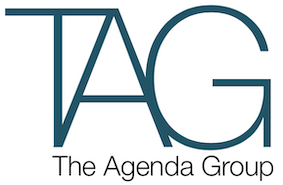Melbourne is the latest in a growing list of major international cities to grapple with issues surrounding ‘short stay’ rentals and its market-changing behemoth, Airbnb.
Tensions over raucous and sometimes violent parties in Southbank and Docklands apartment buildings yesterday prompted Minister for Consumer Affairs Jane Garrett to announce a seven-person expert panel to investigate the problem.
The issue is not just one of uptight residents dobbing in their noisy neighbours, “noisy parties can be more than a nuisance, they can cause real tensions in apartment blocks when residents and investors clash,” said Minister Garrett. Many of these conflicts have ended up in expensive legal action, echoing the boilover tensions of months ago in New York, and recently in San Francisco.
The panel, led by owners corporation governance expert Simon Libbis, will consider a range of reforms and evidence of similar attempts to quell disquiet worldwide. “We understand short-stay accommodation is an issue for some Melbourne apartment dwellers and the panel will look at how other cities cope, both around Australia and overseas,” said Minister Garrett. 
With 5,000 property listings for the next month in Melbourne, a company value of $10 billion and rumours flying about an upcoming IPO, the growth of services like Airbnb shows no signs of abating any time soon.
Airbnb is just one of the growing challenges regulators face with a burgeoning ‘share economy’ that includes Uber, Lyft, Freelancer, Fiverr and others. And where governments make rules for the market leader, hundreds of their competitors vyying for market dominance fall through the regulatory cracks due to the seemingly infinite variety in business models.
The problem is a difficult one, handled with varying success worldwide and depending on how the issue is framed: are they short-term apartment rentals, sublets, or illegal hotels?
Controversy swirled in New York last October surrounding the release of Attorney General Eric Schneiderman’s report stating New York is “likely owned millions in unpaid hotel taxes from private short-term rentals.”
In a town where property is war and hotels are king, officials have reportedly started secret taskforces to crack down on Airbnb and its ilk, citing public safety concerns. It’s good news for travelers, though, with Credit Suisse reporting the nearly 28,000 Airbnb listings in New York have pushed down hotel prices.
Tensions will soon come to head in New York, bringing deep socioeconomic issues to the fore, with Airbnb head of public policy David Hantman writing a letter to officials in January estimating nearly 90 per cent of hosts rent their property, “to pay their bills and stay in their homes.”
The issue is similar to the one San Francisco faced, but with markedly different response. New York law holds that it’s generally illegal to rent an apartment for under 30 days unless the apartment’s resident is also present. San Francisco’s Board of Supervisors voted in October to allow short-stay rentals with limits: a registry of hosts who may only be owner-occupiers capped at 90 days’ rental per year. The rules appeared to be working out well, but hit a snag of late when Airbnb was ordered to pay back millions in owed back taxes.
Closer to home, Queensland has taken a direct run at stopping raucous parties with its party house legislation while NSW councils threaten million-dollar fines for renting out rooms through Airbnb and the like.
Airbnb, however, is usually careful not to court added conflict with government. Coming out in support of the Victorian panel, Airbnb Australian Country manager Sam McDonagh saying, “Airbnb supports rules that make sense.” Many Airbnb hosts may be surprised to find out that in Victoria they may be currently breaching section 81 of the Residential Tenancies Act by sub-letting their rental apartments without landlord consent.
The report is due to be handed to the minister at the end of May, but the Victorian Government isn’t the only body in Australia turning its mind to the Airbnb of it all – just yesterday executives from Uber and Airbnb were called to a high-level meeting with Joe Hockey and the Productivity Commission in Melbourne to discuss the future of regulating the start-up sector.
Regulators, hoteliers and travellers will be watching the panel’s progress with keen interest in the coming months.
